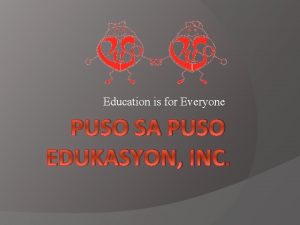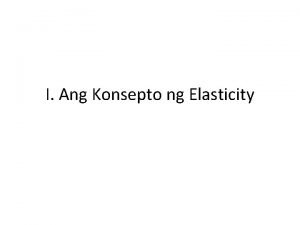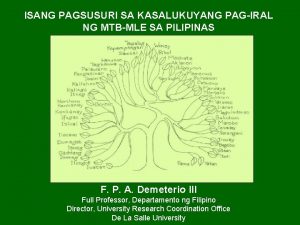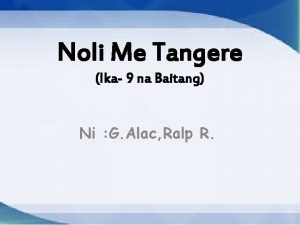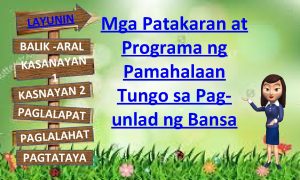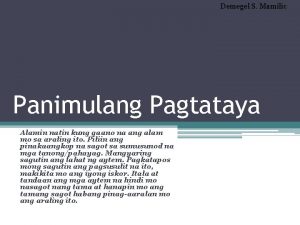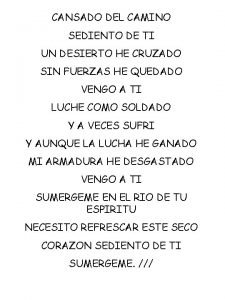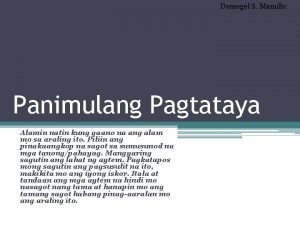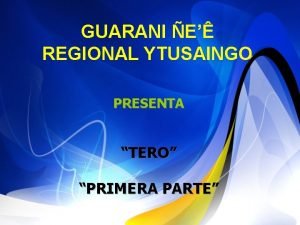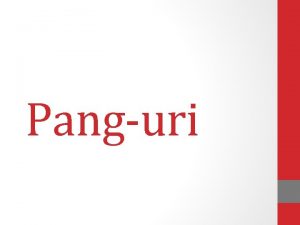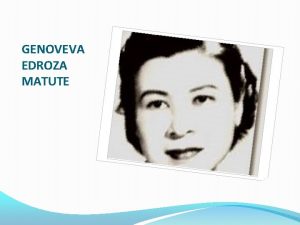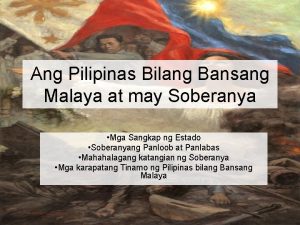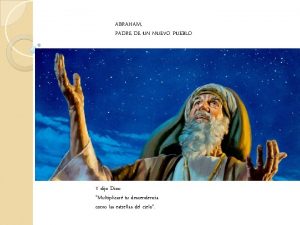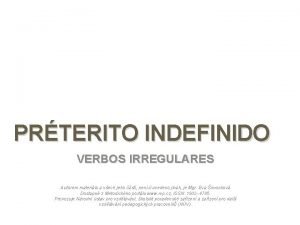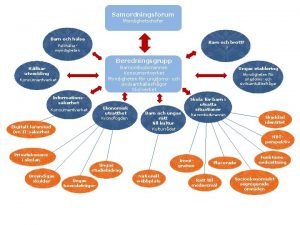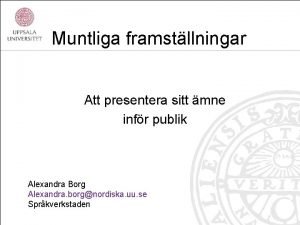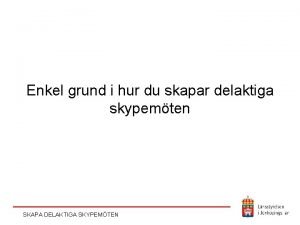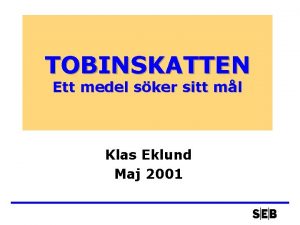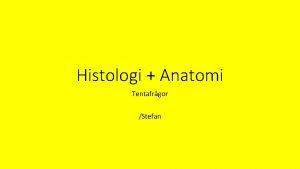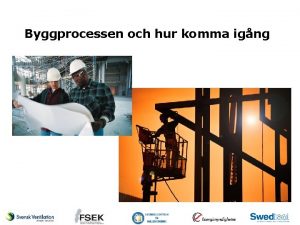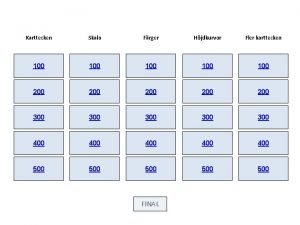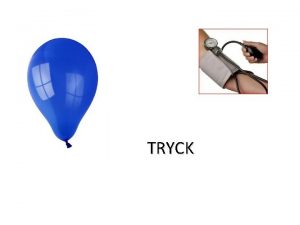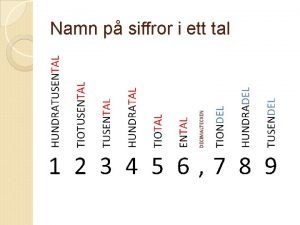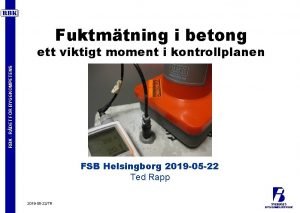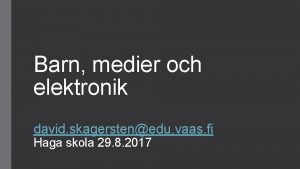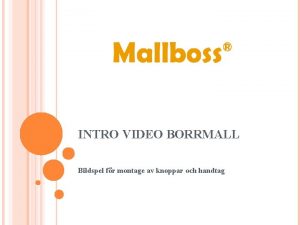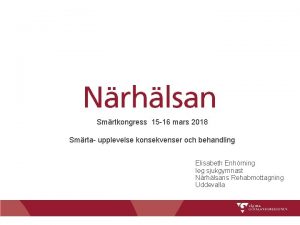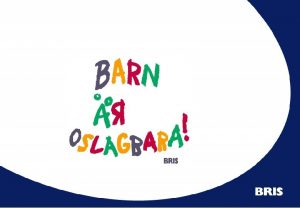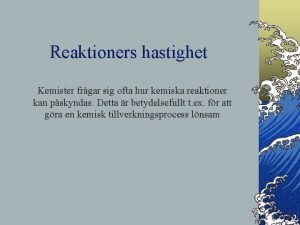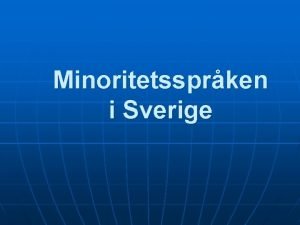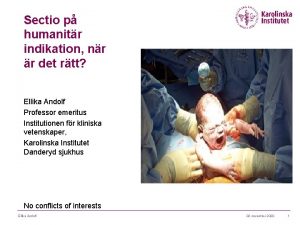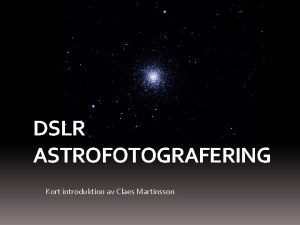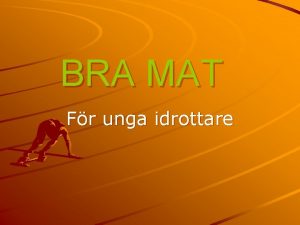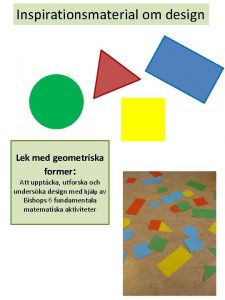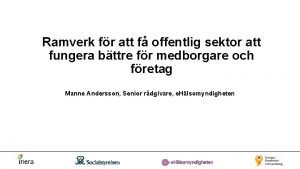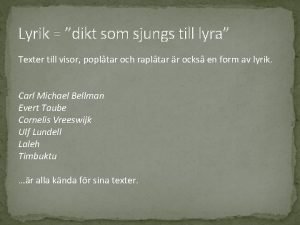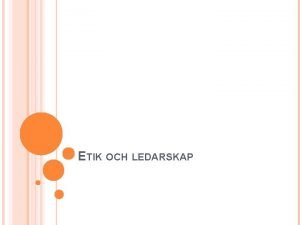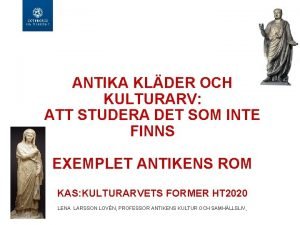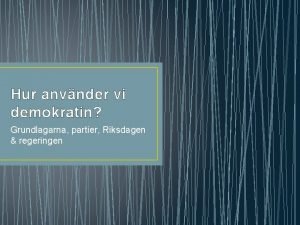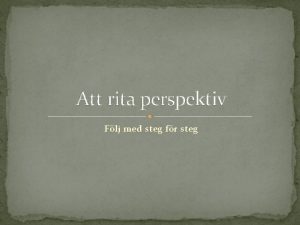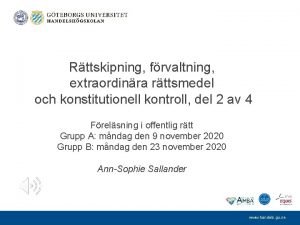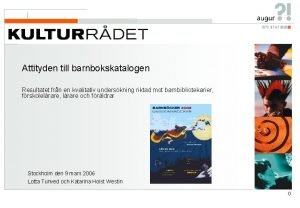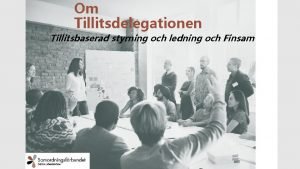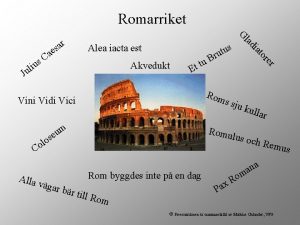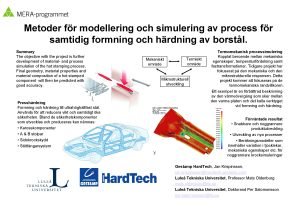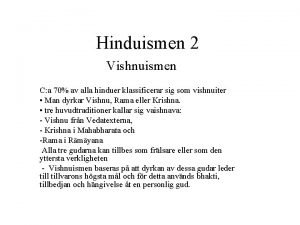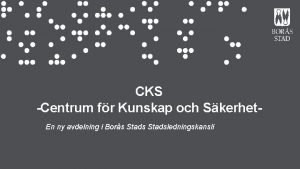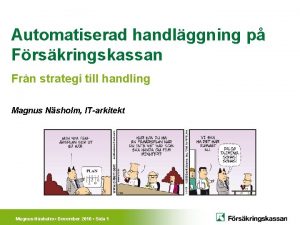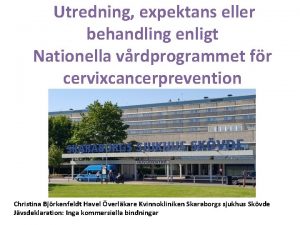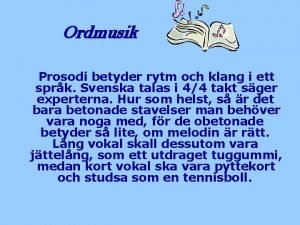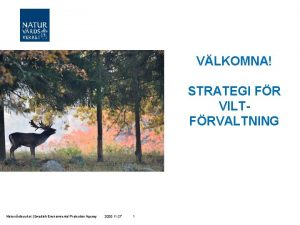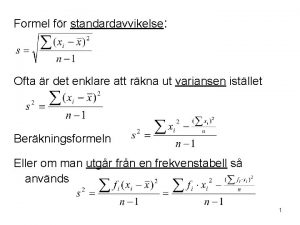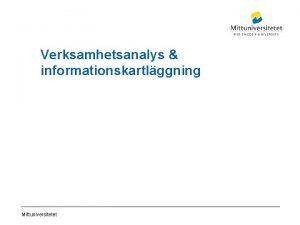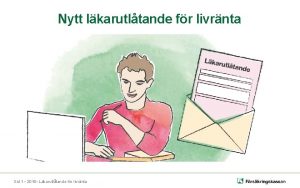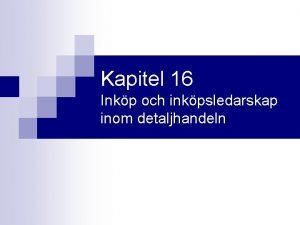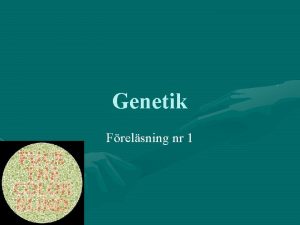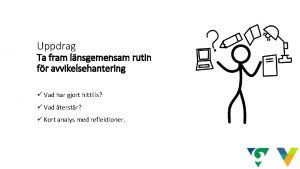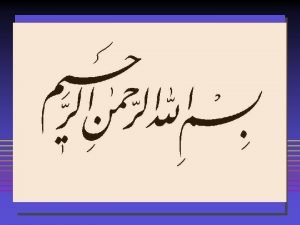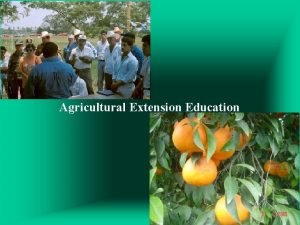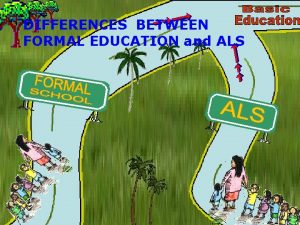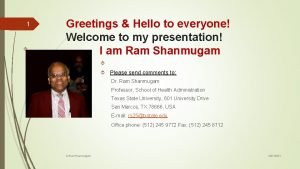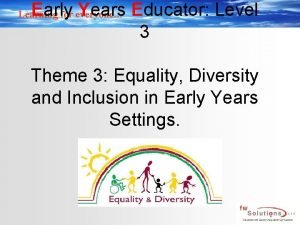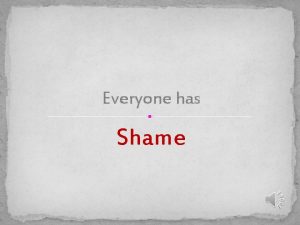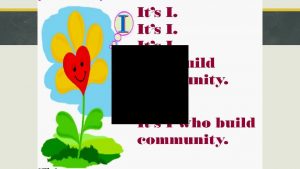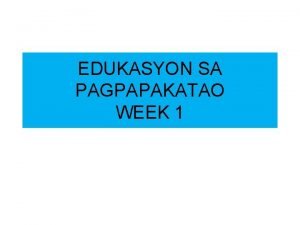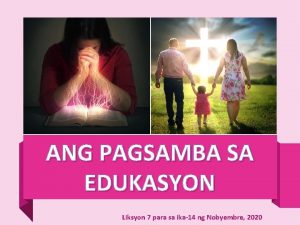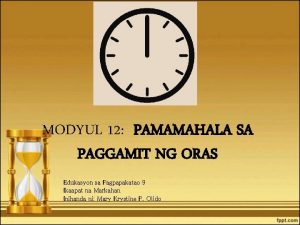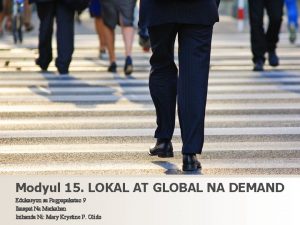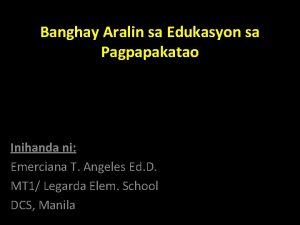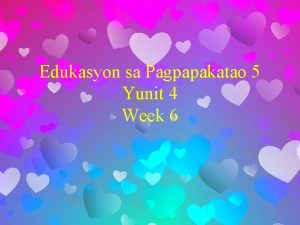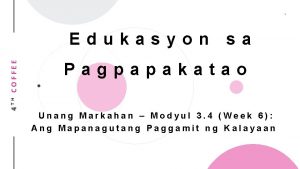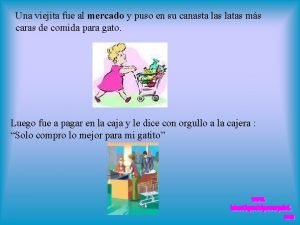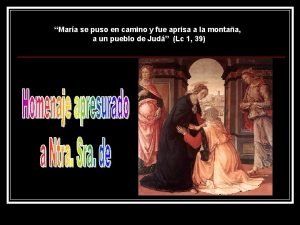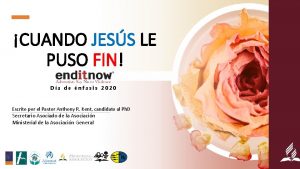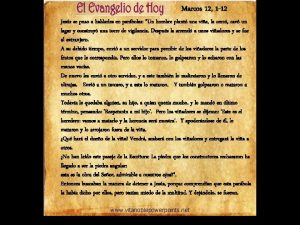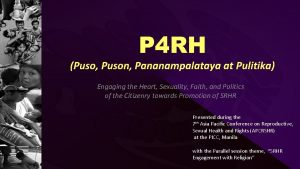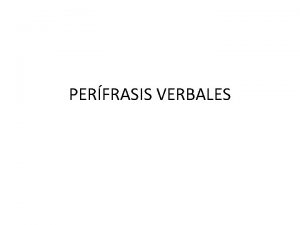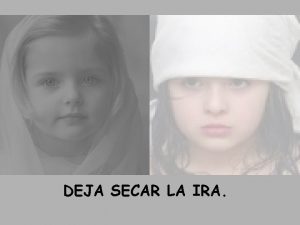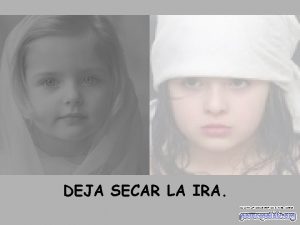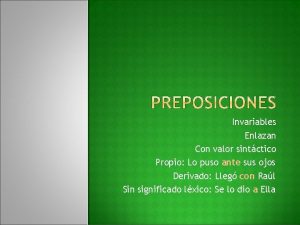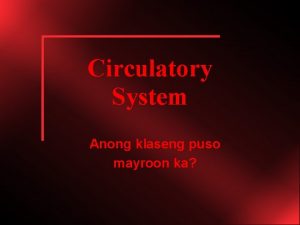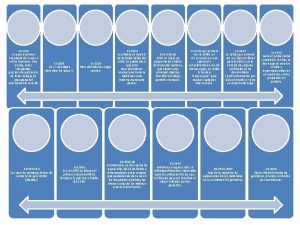Education is for Everyone PUSO SA PUSO EDUKASYON







































































































- Slides: 103

Education is for Everyone PUSO SA PUSO EDUKASYON, INC.

"Give a bowl of rice to a man and you will feed him for a day, teach him how to grow his own rice and you will save his life. " Confucius

WHO ARE WE?

Education: a Right for Everyone � Right to Education is proclaimed in the Universal Declaration of Human Rights as a fundamental right for every human being and included by the United Nations in the eight Millennium Development Goals. � Education should not be reserved to a privileged minority, but should be a reality for everyone, especially the children all around the world.

Our mission � We, as members and staff of PUSO SA PUSO EDUKASYON, INC. strongly support this idea, and we are convinced that Education is the way forward to improve human development in a sustainable way and to tackle other fundamental problems the inhabitants of developing countries, like the Philippines, have to cope with, including poverty, unemployment and the lack of opportunities in society.

Our Status � Puso sa Puso Edukasyon Inc. is a non-stock and non-profit corporation under the laws of the Republic of the Philippines and is officially registered by the Securities and Exchange Commission. � Puso sa Puso Edukasyon Inc. , shares the mission and vision as well the spirituality of the Society of The Divine Savior, the international religious community composed by priests, brothers, sisters and lay people, that's why is under its guidance and support.

Our President � Fr Artur CHRZANOWSKI, SDS � Direction of Puso sa Puso Board Supervision Strategic Planning Budgeting Fundraising Communication Representation with official entities Annual Christmas Party Organizer (w. Vice. President) � � � �

Our Vice-President � Christian INOCENCIO � Supporting of the Chairman and taking over during his absence Website of Puso sa Puso Signing and evaluation of all employment contracts Payment of salaries and disbursement of money for the project and activities Payment of bills Annual Christmas Party Organizer (w. President) Technical IT Support � � �

Our Board Members � Treasurer: Lorena SMIGIELSKA � Secretary: Atty. Tyron CIMAFRANCA � Joseph SARACH � Assist the President especially with the activities of the organization, particularly as advisers in taking decisions

Leader of the ALSA BUHAY Project � Sister Frances MANGABAT, SDS � � � Reports to the President Project coordination Human Resource Management (w. President) Direct monitoring, supervising and implementation of the project in ALSA BUHAY Learning Center in Payatas Collection/Analysis/Submission to the President of the monthly reports from IM’s and Social Worker in Payatas Supervision of the implementation of Awareness and formation Programs for beneficiaries and their families � � �

Coordinator of the ALSA BUHAY Project � Antoine LELARGE, French Volunteer � Reports to the President and to the Project Leader Direct monitoring, supervising and implementation of the project in ALSA BUHAY Learning Center in Parola Collection/Analysis/Submission to the President of the monthly reports from IM’s and Social Worker in Parola Development of a Life Skills Training Program for ALSA BUHAY Learners Supervision of the International Volunteers Development and Management of Scholarships Programs � � �

Our Teachers Darren ILARINA Shiela NALAM Mariel LAGRIMAS Ginalyn MANCAO Arjohn DELA PAZ Maria Lourdes VELASCO

Their responsibilities � Tutoring and Teaching of Groups and Individuals; � Develop and coordinate activities and projects for the Learners; � Conduct regular meetings with Learners and their Parents; � Submit monthly and annual reports;

Teachers’ Training � The teachers are trained by the Department of Education of the Philippines. � The training provides the skills to properly conduct classes for Alternative Learning System as well as to ensure that the students have the same competencies and learning given in formal schooling. � At the end of the first training, the Department of Education awarded Puso Sa Puso Edukasyon, Inc. a certificate which proves that the organization is a duly recognized and registered ALS provider in the country.

Our Social Workers Mark MIRANDA Joceline BASCONCILLO

Our Social Workers � � � � Monitor the condition of ALSA BUHAY Learners and their families in all aspects: education, physical, social, values; Foster parents’ and community involvement in promoting the program; Implement the Child Development Program and all its services (educational assistance, physical/health services, leadership and social activities, values formation activities); Implement the Parents Awareness Program; Develop and coordinate activities and projects for the Learners; Conduct regular meetings with Learners, their Parents and the Community; Mobilize staff, volunteers and beneficiary parents to accomplish the Child Development Program; Submit monthly and annual reports.

Our International Volunteers Robin BUSCH Christian LECHELER Johannes PRESTER � Visit Pre-School age children under 6 of the area at their homes giving them Basic Education in English and Tagalog.

WHO ARE OUR BENEFICIARIES ?

PAROLA � Parola in the city of Manila is one of the biggest slums in the Philippines with an area of 205, 800 m 2. � It is divided into two clusters (known as Barangay 20, Zone 2, District I in Tondo and Barangay 275, Zone 25, District III in Binondo).


� In 2001 -2002, it was legally mandated that Parola should be given to the actual occupants (squatters). � Currently, its population is estimated at about 57, 000 people.

� Parola lacks the primary amenities that a community with a large population should have. � There is no health centre, the streets and roads are very narrow, the drainage system is poor, there is no garbage/waste disposal management and, most importantly, the water supply system and electrical facilities are incomplete. � In fact, only around 25% of the households have electricity and 40% have water supply. Most of the residents just buy clean water for Ph. P 2. 00 per container and use oil lamps and candles at night, which easily causes fire.

The Philippines, a country with flagrant inequalities


High unemployment rates � The privatisation and deregulation of North and South Harbour caused high unemployment rates for the residents of Parola and nearby areas. � Moreover, the situation became worse due to decreasing trades in Divisoria, one of the biggest trade centres in Manila where most of Parola’s residents work. � As a result, people have to be inventive to survive. They scratch out a living as cycle rickshaw drivers, helpers, laundry washers, garbage collectors, or through running small kiosks (where products like sardines, rice, candy, shampoo and soap are being sold).

Even peeling off garlic skin is a popular way of earning money. � Since the vast majority of people in Parola earn no more that 3, 500 Pesos (75 USD) per month, many of them no longer get by. � As a result, the number of beggars as well as street crimes increased. � Drug abuse also exists; the users sniff ‘solvents’ which apparently help them not to feel hungry. �

Education in Parola � There is only one very small day care centre in Parola which can accommodate no more than 40 children of 4 -6 years old per school year. � There is no elementary or high school due to lack of space and funding. Yet in the surrounding neighbourhoods there are enough public elementary and high schools, which are free of charge for matriculation and books as well as for most other charges levied in private schools. � Nonetheless, with a total of about 30, 000 children in Parola only 50% attend the public schools.


15, 000 Out of School Youth � The main reason why about 15, 000 children do not attend the public schools is socio-economical. Most indigent families see their children as tools for economic production; they are employed as free child labour and thus unable to be freed for structured schooling. The child labour survey of the International Labour Organisation showed that in 2000 -2001 11% of all children within the elementary age bracket were in economic activities. � 0. 9% of these children (326, 984) never attended school because they were used exclusively as labour force. � 5. 9% (1, 853, 582) were allowed to enter school but were also engaged in economic activities, substantially increasing the possibility of failing or dropping out of school. Today the numbers are even higher. ) �

� � � Of the 15, 000 children that actually start schooling, many drop out for similar reasons. To reach the schools, the students would need to walk or spend 20 pesos every day for the transportation. An allowance of at least 50 pesos per day is needed to be able to eat and buy school materials that are not provided. Thus, not all of the enrolled students are able to go to school on a daily basis resulting to only 20% of them being able to finish elementary and high school because of financial problems. Those who stop schooling are then forced to work in the wet market to carry heavy loads of vegetables and meats or collect garbage to be sold in junkshops just to earn a small amount of money. Many of the children are being deprived of their right to learn and play as most of them start working at a very young age.

PAYATAS � Barangay PAYATAS got its name from Payatas Estate, a vast tract of land covering approximate area of 5, 295 hectares. � PAYATAS is derived from the word “PAYAT sa TAAS” meaning the soil of highlands is not fertile compared with the low lands along Marikina River. � � � It occupies a little less than 20% of the city’s land area. The population was almost 125, 000 as of 2003. Majority of the residents fall below the poverty level, living harsh and poor conditions in the depressed areas. � The language used is Tagalog and secondary dialects are Waray, Ilonggo, Visaya, Bicol, Ilokano, Panggalatok and Kapampangan.


Localisation Payatas is a barangay located in the 2 nd district of Quezon City, Metro Manila, Philippines. � Nearby barangays are Commonwealth, Batasan Hills and Bagong Silangan. �

The origins of inhabitants � The community is mainly composed of people who come from calamity stricken parts or zones of conflict in the Philippines. � Many lost their homes and meager livelihood as tenants, small farmers or fishermen, through typhoons, earthquakes or other natural disasters. � Others left their provinces because they became involved in or were victims of armed conflict between military groups and the Communist New People's Army (NPA). They migrated to the city in search of a better future for themselves and their families - often settling with relatives already squatting there.

Demography � � � � � Payatas area has a population of 125, 000 more or less 10% of the city’s 2003 estimated population. Average annual population growth rate for the past 10 years is 15. 23% High growth rate is due to immigration. The continuous influx of migrants is alarming. Estimations indicate that more than 80% of the residents are migrants. The female population comprises 49. 66% while the male population constitutes 50. 66% of the population. Women of the reproductive age, (15 -44 years old) are 51% of the total female population. The population is described a generally young. School age population (7 -12 years old) is estimated to be 32% of the total population. The community has different religious beliefs. Majority of the income of the families are below food threshold. Skilled workers are dominant rather than professional workers.

Health � � Crude birth rate is 35. 01/1000 population. Crude death rate is 3. 88/1000 population. Infant mortality rate is 1. 86/1000. � Leading cause of morbidity is respiratory infection, gastrointestinaldisorder, skin disease and parasitism. � Leading causes of mortality rate are pneumonia, myocardial infraction, PTB, stabbing and hypertensive heart disease. � Malnutrition is rampant among children in Lupang Pangako, Buria, Sandakot, Asper and areas near the dumpsite. About 50% of the children are suffering from first to third degree malnutrition.

� Their insufficient income makes it difficult to find the money they need when a family gets sick and needs to buy medicines. Despite the proximity of hospitals and clinics, they are unable to pay for basic health care. � Their struggle to survive poverty and hopelessness is a daily trial for them. To get sick is a big crisis for these families. For the daily bread winners, to get sick means being unable to go to work and unable to earn money to buy food for the children. For the children who lack immunization and are malnourished, to get sick means death at a young age.

Children working on the dumpsite of Payatas



Profile of our beneficiaries � Most of our learners (at least 90% of them) are classified by the Department of Education of the Philippines as Out of School Youth, what concretely means that they have stopped going to school since several years. � It is not easy to give them a taste for learning, motivate them to study and find the tools to enable them to acquire the knowledge necessary for them to pass the exam. Being out of the formal school for a long period of time, they lost the feeling of self esteem and some have developed an inferiority complex, which is deeply rooted in their minds.


WHAT DO WE DO?

Our Programs: � � � 1. The Preschool Program 2. The Basic Education Program 3. The ALSA BUHAY Program EDUCATION � � 4. The Life Skills Training Program 5. The Parents Awareness Program AWARENESS � � � 6. The Feeding Program 7. The Distribution of Rice 8. The Livelihood Program 9. The Health Care Program 10. The Mother & Child Program � 11. The Scholarship Program SCHOLARSHIP � 12. The Christmas parties EVENTS SOCIAL PROGRAMS

OUR EDUCATIONAL PROGRAMS

1. The Preschool Program � Our International Volunteers (from 18 to 29 years old) undergo trainings on the practice of preschool teaching, before to hold lessons for children who are between three and six years old. � Each of them teach 20 children, who are divided into five groups. � The lessons with each group last between one and a half hour and is based on reading, writing and coloring. � Each child has lessons at least twice a week. � The program aims to give these children the same chance than the ones going to kindergarten, by providing them basic education for free (Alphabet, numbers, colors, social skills, calculation…). � Field trips and other activities are also organized for the beneficiaries of that program.



2. The Basic Education Program � Puso sa Puso Edukasyon Inc. has set up a Basic Education Program for our beneficiaries, who cannot read, write or count (approximately 10% of the beneficiaries). � These students, from 8 years old to 45 years old, go every Friday to the ALSA BUHAY Centers of Parola and Payatas, where they undergo special training adapted to their academic level. � This program aims to help them to acquire the basic knowledge and skills, that will allow them to better integrate into the economic and social system. � We are perfectly aware that these learners will not be able to reach the level required to pass the examination, but alone the results of this program and the amazing progress made by the beneficiaries fully justify the attention that we give them.

3. The program ALSA BUHAY (Alternative Learning System Approach: Bridging Unlimited Hope for the Advancement of Youth) � Key Program of PUSO SA PUSO EDUKASYON, INC. , the project ALSA BUHAY aims to provide a framework for supporting out-of-school youth (OSY) to complete basic education through the ALS (Alternative Learning System), a Philippine government programme that awards certificates of equivalency for elementary and secondary school diplomas.

� In the Filipino language, Alsa means to “lift up, or carry”, while Buhay means “life”. � These words are rarely used in conjunction in the Filipino language, and yet used together as here, they capture with uncanny precision the goal of the project: To uplift the future lives of Filipino youth by way of education.

The objectives of the program ALSA BUHAY � We, members and staff of Puso Sa Puso Edukasyon Inc. have set up this educational project in the slums of Parola and Payatas, two of the biggest in Manila, to offer people a way out of structural poverty. We focus on assisting slum children to take the Accreditation and Equivalency Examination � (the equivalent of a long-term school education). � � The project's basic concept is to establish a prototype learning centre that shall offer the functions and operations of private alternative learning system delivery centers for out-of-school youth, but provide the services for free.

Our ALSA BUHAY Centers Parola Payatas

Aim of the Project � This project has been set up to offer street children a way out of structural poverty through education. Through the Alternative Learning Centres, we offer the children and families of Manila slums the opportunity: - to realize how important education is to get out of structural poverty; - to better understand their situation; - to help them to improve their lives; - to become familiar with positive values; - to undergo counselling sessions; - to tackle the issue of abuse and violence; - to get a job. �

They Dream

They Dream (26 min. ) � Part 1: � Part 2: � http: //vimeo. com/26 872602 � http: //vimeo. com/26 876152

The challenges faced by the program � The ALSA BUHAY Centers of Parola and Payatas has given, since the beginning of the program, in 2010, the opportunity to more than 700 individuals (in a large majority "Out of School Youth") to improve their lives through the mean of a good quality education and has become a true bridge between the Street and the formal School. � Of course, it has not been easy to reach that target and the team of Puso sa Puso Edukasyon in Parola and Payatas had to face many challenges.

An important number of drop outs � Since the start of the ALSA BUHAY program, we have noticed that an important number of beneficiaries dropped out the program, few weeks or months after their enrolment, what explains as well the limited number of Test Takers. � Ø Several factors can be identified to explain that situation: The lack of incomes and the necessity for the beneficiaries to work in order to buy food for their families The lack of motivation and perspectives The lack of values The lack of self confidence and the fear to fail The presence of “fraternities” in the area The use of drugs The early Pregnancy The transfers of residence The Family problems The Health related problems The Child abuse… Ø Ø Ø Ø Ø

Solutions implemented by Puso sa Puso Edukasyon Inc. � We, members and staff of Puso sa Puso Edukasyon Inc. , are aware of these difficulties encountered by our beneficiaries. � We are constantly looking for new solutions and are implementing new tools in order to face those challenges, like the Life Skills Training Program, the Parents Awareness Program or the Feeding Program.

OUR AWARENESS PROGRAMS

4. The Life Skills Training Program � Capacity building and empowerment of ALSA BUHAY beneficiaries are essential elements to ensure the effectiveness, relevance and sustainability of the program. � Every two weeks, on Saturday (24 sessions/year), all beneficiaries of ALSA BUHAY Program have obligation to attend a 7 hours training day.

� In order to reduce the number of drop-outbeneficiaries, PUSO SA PUSO EDUKASYON, INC. has reinforced the formation of its beneficiaries, providing them a holistic program, based on the Personal Development of each one of them and requires also their active participation. This so called Life Skills Training Program is based on three different activities: - the Values Formation conducted by Salvatorian Brothers, - the Moduls of Personnal Development - and the Art and Talent Workshop. �

SCHEDULE 8 am-10 am ACTIVITIES Values formation & Catechism 10 am-10. 15 am Break/Merienda 10. 15 am-12 am Modules (Conferences and Workshop) of Life Skills Training Lunch Break Noon-1 pm 1 pm-4 pm Talent and Art Workshop 1 pm-4 pm Individual Counseling Sessions RESOURCE PERSON Florencio Ompad DESCRIPTION Based on catechism lessons and Bible Sharings, that the Learner can relate to his/her own personal experience, this formation given by a Salvatorian Seminarian aims to develop the spirituality of each beneficiary and to teach him/her Christian values, such as compassion, generosity, responsibility, gratefulness… Program Coordinator, Social Worker and Instructional Managers Team Building, Life Plan Project, Motivation/ Inspirational talk, Conflict Management, Time and Stress Management, Resume Making Workshop, Danger of addictions… Assigned Parents of Learners The cooking and distribution site of meal will be facilitated by the assigned parents as part of their volunteer service to the center. Darren Ilarina As part of the holistic formation given to each beneficiary, the Art & Talent Workshop has the objective of developing the individual talent of each beneficiary and nurturing creativity, something very essential to their personal growth. IM’s, Social Worker, Program Coordinator In the same time than the Art and Talent Workshop, individual counseling sessions are organized weekly to proceed to personal evaluation of the Learner’s performance and of his “Life Project”. It is a privileged moment that gathers the Learner, his/her parents, his/her referent Teacher and the Social Worker and that allows them to closely follow up the individual situation of every beneficiary.

Learners of Parola Center making Valentine’s Card

5. The Parents and Learners Awareness Program � Once the ALSA BUHAY beneficiaries are selected for the year training, almost all of them have partial dislocation in income generating activities (children are asked by their parents to go out and work whatever tasks they can to help generate some additional family income). � The programme is meant to enlighten these parents that the sacrifice that they incur during the time the children are attending the ALS learning process has a positive socio-economic impact on their lives and not just the lives of the pupil.


� The program consists of 6 sessions to be attended by parents of the ALSA BUHAY Learners. � The first part of this sessions feature social and cultural development that makes education an acceptable pathway for upgrading their socio-economic conditions in a family where education is considered a luxury. It is conducted by licensed social workers. � The second set of seminars is a programme intended to make the parents understand that bringing children into the world has an attendant responsibility for the welfare and development of their children, including making sure they grow to be morally upright and responsible regardless of their economic status in life. This programme is handled by Fr. Artur's group.

� The Program includes also meetings gathering both, parents and learners, on different topics: acquisition of new knowledge on social interaction; parent management (how they can handle their own family, especially their children); process of knowing yourself and how to develop your self-esteem; Convention on the Rights of the Child (CRC); activities on specific aspects of children’s rights: survival, development, protection and participation aspects.

OUR SOCIAL PROGRAMS

6. The Feeding Program � 4 times a day, a substantial snack is given to every Learner. � Two teams of volunteers (one for the morning and one for the afternoon) are in charge of preparing and cooking the food. � The Program aims to improve the nutrition of our beneficiaries.

7. The Distribution of Rice � Moreover, the distribution of 20 kg bags of rice every month to the most deserving learners (based on the attendance records held by the Instructionnal Managers) aims to: - Improve the nutrition of the Learners, - Resolve the dilemma that many Learners are facing between their will to study and their necessity to work to bring food to their families, - Improve the attendance of the Learners (if they cumulate more than three (3) absences without any valid justification within the month, they lose their right to get rice), - and, finally, should prevent a large number of the cases of drop out.

The monthly distribution of rice

8. The Livelihood Program � Aside of those programs, Puso sa Puso Edukasyon Inc. , conducts some trainings for the parents of the ALSA BUHAY Learners within the framework of its Livelihood program. � This trainings aim to give them knowledge and skills to start a generating incomes activity and improve their living conditions, not only for them, but also for their entire families.


9. The Health Care Program � The Goal of the Project: � Among our beneficiaries, some have never been to school and others dropped out, not only because of the financial situation of their families, but also sometimes because of some related heath problems. � To respond to their needs in terms of health, Puso sa Puso Edukasyon, Inc. provides them basic cares for free. The aim of the program is to improve their health condition in order to enable them to go back to school.

� Project Objectives: - Bring them Education in terms of health; - Make them aware of their health status and accompany them when it is needed to get the adequate treatment; - Prevent risk behaviors; - Provide them basic health care; - Improve their oral and dental health; - Increase knowledge regarding HIV and STD.

1) Moduls of formation (already integrated in the Life Skills Training Program and the Parents Awareness Program) focusing on prevention SCHEDULE ACTIVITIES RESOURCE PERSON 02/15/2014 Hygiene and first aid Miss Ray Ann (English teacher Fr (with beneficiaries and their Artur) parents) 09328847288 05/24/2014 Teen Sexuality/ Relationship (with beneficiaries and their parents) 09/13/2014 Danger of addictions Manila police District (with beneficiaries and their Program Coordinator, Social parents) Worker and Instructional Managers Sis. Adele, SDS Program Coordinator, Social Worker and Instructional Managers DESCRIPTION The Youth of Today Effects of Information Technology and the Medias Chastity is a virtue Sexually transmitted disease

2) Healthy Smile Project � Most of our beneficiaries lack education regarding dental health and the majority have never seen a dentist for consultation in their entire life. � Logically, some of them suffer oral problems, including bad breath, dry mouth, canker, cold sores, tooth decay, or thrush, which may result in physical pain or discomfort. In many cases, this leads to low self-esteem, particularly among the teenagers, and sometimes even affects their studies. � However, all these oral and dental diseases are treatable with proper diagnosis and good oral hygiene habits. � � Early intervention with basic care, education for parents and children, plus distribution of oral hygiene supplies, can make a difference now and in the future. � Thanks to our International network of benefactors and volunteers, we are able to organize visits to a dentist for those of our beneficiaries who need it and to provide them the adequate dental cares for free.


3) Medical Missions � Puso sa Puso Edukasyon Inc. organizes Medical Missions for our beneficiaries by implementing partnerships with Caritas Novaliches and the Rotary Club Manila. � Since most of our beneficiaries can not afford to pay for a medical consultation, the idea is to provide them quality healthcare services for free, to enhance preventative care and to achieve long term and self-sustaining healthy communities in Parola and Payatas.

4) Free HIV Screening Test � The AIDS epidemic in the Philippines has been rapidly changing in the past five years. The increase in the number of new HIV infections is at a place the country has never seen before. From one new case every three days in year 2000, to one new case every three hours by the end of 2011. � Since the Philippines is at a critical point, Puso sa Puso edukasyon, Inc. has decided to join the efforts made by the Government and the International Community to be able to track the magnitude of the growing epidemic. � In this way, we systematicaly propose our beneficiaries (with the consent of their parents/guardians when they are under majority) and their families to undergo a Free HIV Screening Test to make them aware of their health status and we continue accompanying them after it whatever the results are.

10. The Mother & Child Program Goal: To gain a holistic formation as young mothers: life-giving stewards who are: - Knowledgeable - Responsible - Nurturing - Accountable � Objectives: That as young mothers they - May be able to know God who is the Source of Life. - May be given deeper consciousness and awareness of their identity and role as Stewards of the life entrusted to them through a regular monthly spiritual input. - May gain knowledge on the basic steps of nurturing and care from conception to birth and after birth. - May become accountable and responsible Stewards - mothers by updating themselves with basic knowledge on the care for children and family. �

� The program is an integration of the scientific practices of the stages of motherhood with Spirituality and Gospel Values. � The resource speakers invited are the following: Sr. Ma. Guadalupe Olano, SDS who will tackle on the spiritual side of the program with Biblical references. Ø Ms. Lea Soriano, a Registered Nurse - A mother of 4 grown-up children - President of the Health Maintenance Organization Getwell Systems Inc. - A volunteer worker of the Dugtong Trabaho of Mt. Carmel Parish, New manila, Quezon City - Member of the Christian Family Movement Ø

SCHOLARSHIP

11. The Scholarship programs � We continue to support the former beneficiaries of the ALSA BUHAY Program in their efforts to effectively go back to the formal school, even after the end of the 12 months-Program, by offering scholarships to the most disserving ones. � Our scholars are selected upon four main criterias: indigency, family situation, motivation, and academic performance.

John Carl AYATON � � � When his mother died few years ago, John Carl (8) stayed with his father, while Tanding, his younger brother, went to another province to live with her grandmother (the one of the mother’s side). Since then, the two brothers have not seen each other again. The father of John Carl has sometimes a violent behavior and her new live-in partner, Janeth, does not accept to live in the same house as John Carl. The little boy feels safe only when he is with Evangeline, the mother of Janeth, who feels affection for him. In fact, she raises him as her own son and takes care of him. But, Evangeline, who is now 78 years old, cannot afford to enroll him in school because of her financial situation.

� John Carl is a really sweet and smiling little boy, who dreams to have the chance to go to school one day. � This year, he is participating to a program that Puso sa Puso Edukasyon, Inc. has set up in order to provide basic education to around 80 children between 3 and 8 years old.

ALVIN MONTE � Sonia, the mother of Alvin comes from the island of Negros, in the Visayas region. When she was 17, she left her province to work in Manila as a Housemaid. That is where she met Angelito, her husband. � The couple married twenty years ago. Together they have 4 children, three girls and a boy. The family was happy until their situation brutally changed, when Angelito has got sick three years ago. � According to the doctors, he has tuberculosis, a very incapacitating sickness that avoids him to work. � Sonia, the mother of Alvin, is sick as well and is not capable anymore to go the nearest neighborhood of Divisoria, where she was used to sell ears of corn. � As a consequence, the family lives from now on in a situation of indigence and the parents cannot afford to send their children to school because of the lack of incomes.

According to his former teachers, Alvin is an incredible fast learner and he is highly motivated to study. Logically, he dreams to become later on a teacher.

Janelle Carla AREVALO � � � In 2010, when she was in 4 th Year high School, Janelle, 22 years old, had to suspend her studies because of financial problems. Indeed, her father got tuberculosis, a very incapacitating sickness, and was not able to work anymore. To support financially her family, Janelle moved to Parola, where was living her auntie, and got a job as Saleslady in an Office Supplies Shop. Few months after her arrival, she met Jhemel, her partner. Together, they got a baby, Lian Nathalie, who is now 3 years old. Even if they do not see each other more than two days every week (Jhemel works as a Timekeeper in a construction company in the city of Antipolo - located at several hours from Parola - and goes back home only during the week-end), the couple is struggling to raise her daughter and to give her the best possible education.

� Janelle, is a really responsible young mother. Although the Life has not always treat her kindly and even if she had to sacrifice her studies in order to support her family, Janelle keeps believing in a better future for her and her little daughter.

SOCIAL EVENTS

12. The Christmas parties � Since 2008, our yearly goal is to provide an unforgettable Christmas Party for at least 1, 000 less fortunate children in Metro Manila. � Several hundreds of volunteers chaperon every year the children with games, food, clowns, and a two-hour stage presentation. � The show has singers, dancers, animal tricks, and other performers who keep the children entertained until the main attraction: a supper of spaghetti, roasted chicken, fruit, and soft drinks. Several thousand pounds of food are prepared and served by a small army of cooks. � At the end of the Christmas Party, each child receives a gift bundles containing sandals and school supplies.

Video of the 2013 Charity Christmas Party � http: //www. youtube. com/watch? v=MDEL 8 JNv. Nq. Y#t=12

Our Policies � Child Protection Policy � Code of Ethics � Attendance Policy � Discipline Policy

WHO ARE OUR PARTNERS?


� Diocese of Augsburg � Philscott � SPCC � Cor. Aid

HOW TO SUPPORT US?

To make a donation: � Puso Sa Puso Edukasyon, Inc. #11 Nicanor Reyes Street, Xavierville Subd. , Phase 2, Loyola Hts. , 1108 Quezon City Philippines � Name of Account: PUSO SA PUSO EDUKASYON INC. 1. Australian Dollars Savings Account No. : 002574 -0316 -16 � � � 2. Euro Saving Account No. : 002574 -0316 -08 3. Peso Saving Account No. : 002573 -1415 -66 SWIFT CODE : BOPIPHMM Bank of the Philippine Islands Branch 0257 -North Greenhills G/F Greentop Condominium Ortigas Avenue Greenhills San Juan City Philippines

To become volunteer: � If you would like to joins us and become a volunteer, please contact us through any of the methods below: � Telephone : +632 3866234 � Mobile : +63915 4812623 � Email : pusosapuso@gmail. com

To sponsor a child: � Please, contact: � Annita Di Donato: annita. didonato@sofiaglobal. org or � Antoine Lelarge: antoinelela@yahoo. fr

Maraming Salamat!!! (Thank you very much!!!)
 Puso ng edukasyon
Puso ng edukasyon Hope all is well gif
Hope all is well gif Suliranin ng edukasyon
Suliranin ng edukasyon Tungkulin ng pambansang pamahalaan
Tungkulin ng pambansang pamahalaan Pananaliksik tungkol sa mtb-mle
Pananaliksik tungkol sa mtb-mle 6 na layunin ng noli me tangere
6 na layunin ng noli me tangere Mga program sa edukasyon
Mga program sa edukasyon Naliliping
Naliliping Un desierto e cruzado
Un desierto e cruzado Katatagan ng puso at baga
Katatagan ng puso at baga Ikinaiba ng sanaysay sa iba pang akdang tuluyan
Ikinaiba ng sanaysay sa iba pang akdang tuluyan Que es tero tigua
Que es tero tigua Ano ang ibig sabihin ng pang uri
Ano ang ibig sabihin ng pang uri Paglalayag sa puso ng isang bata buod
Paglalayag sa puso ng isang bata buod Simbolo soberanya ng pilipinas
Simbolo soberanya ng pilipinas Qué hizo esaú que puso muy triste a su padre
Qué hizo esaú que puso muy triste a su padre Vasijas de barro predicas
Vasijas de barro predicas Salubong panitikan
Salubong panitikan Dije indefinido
Dije indefinido Myndigheten för delaktighet
Myndigheten för delaktighet Presentera för publik crossboss
Presentera för publik crossboss Densitet vatten
Densitet vatten Debattartikel mall
Debattartikel mall Var 1721 för stormaktssverige
Var 1721 för stormaktssverige Nationell inriktning för artificiell intelligens
Nationell inriktning för artificiell intelligens Tack för att ni har lyssnat
Tack för att ni har lyssnat Tobinskatten för och nackdelar
Tobinskatten för och nackdelar Mall för referat
Mall för referat Mjälthilus
Mjälthilus Lågenergihus nyproduktion
Lågenergihus nyproduktion Karttecken sten
Karttecken sten Arkimedes princip formel
Arkimedes princip formel Multiplikation uppställning
Multiplikation uppställning Fuktmätningar i betong enlig rbk
Fuktmätningar i betong enlig rbk Elektronik för barn
Elektronik för barn Personalliggare bygg undantag
Personalliggare bygg undantag Borra hål för knoppar
Borra hål för knoppar Smärtskolan kunskap för livet
Smärtskolan kunskap för livet Bris för vuxna
Bris för vuxna Frgar
Frgar Argument för teckenspråk som minoritetsspråk
Argument för teckenspråk som minoritetsspråk Datorkunskap för nybörjare
Datorkunskap för nybörjare Magnetsjukhus
Magnetsjukhus Humanitr
Humanitr Vad står k.r.å.k.a.n för
Vad står k.r.å.k.a.n för Toppslätskivling dos
Toppslätskivling dos Redogör för vad psykologi är
Redogör för vad psykologi är Claes martinsson
Claes martinsson Mat för idrottare
Mat för idrottare Gumman cirkel sång
Gumman cirkel sång Offentlig förvaltning
Offentlig förvaltning Cirkelkomposition dikt
Cirkelkomposition dikt Etik och ledarskap etisk kod för chefer
Etik och ledarskap etisk kod för chefer Fredsgudinna pax
Fredsgudinna pax Personlig tidbok fylla i
Personlig tidbok fylla i Vilken grundregel finns det för tronföljden i sverige?
Vilken grundregel finns det för tronföljden i sverige? Steg för steg rita
Steg för steg rita Formuö
Formuö Ministerstyre för och nackdelar
Ministerstyre för och nackdelar Jätte råtta
Jätte råtta Sju principer för tillitsbaserad styrning
Sju principer för tillitsbaserad styrning Vem räknas som jude
Vem räknas som jude Sju för caesar
Sju för caesar Nyckelkompetenser för livslångt lärande
Nyckelkompetenser för livslångt lärande Handledning reflektionsmodellen
Handledning reflektionsmodellen Varför kallas perioden 1918-1939 för mellankrigstiden
Varför kallas perioden 1918-1939 för mellankrigstiden Matematisk modellering eksempel
Matematisk modellering eksempel Shaktismen
Shaktismen Cks
Cks Verktyg för automatisering av utbetalningar
Verktyg för automatisering av utbetalningar Aktiv exspektans
Aktiv exspektans Jag har nigit för nymånens skära
Jag har nigit för nymånens skära Boverket ka
Boverket ka Strategi för svensk viltförvaltning
Strategi för svensk viltförvaltning Sura för anatom
Sura för anatom Typiska novell drag
Typiska novell drag Formel standardavvikelse
Formel standardavvikelse Ledningssystem för verksamhetsinformation
Ledningssystem för verksamhetsinformation Tack för att ni har lyssnat
Tack för att ni har lyssnat Läkarutlåtande för livränta
Läkarutlåtande för livränta Klassificeringsstruktur för kommunala verksamheter
Klassificeringsstruktur för kommunala verksamheter Tack för att ni lyssnade
Tack för att ni lyssnade Inköpsprocessen steg för steg
Inköpsprocessen steg för steg Påbyggnader för flakfordon
Påbyggnader för flakfordon Egg för emanuel
Egg för emanuel En lathund för arbete med kontinuitetshantering
En lathund för arbete med kontinuitetshantering Atmosfr
Atmosfr Biologiska arvet
Biologiska arvet Rutin för avvikelsehantering
Rutin för avvikelsehantering Difference between health education and physical education
Difference between health education and physical education Types of extension education
Types of extension education Formal education and non formal education venn diagram
Formal education and non formal education venn diagram Good morning students good
Good morning students good ________ (speak) más despacio, por favor.
________ (speak) más despacio, por favor. Good morning hi
Good morning hi Nothing is ready question tag
Nothing is ready question tag Everyone is a reader some just haven't
Everyone is a reader some just haven't Hello everyone welcome to my presentation
Hello everyone welcome to my presentation I think almost everyone has heard
I think almost everyone has heard Early learning for everyone
Early learning for everyone Contoh indefinite pronoun
Contoh indefinite pronoun Almost everyone fails to pass the driver's test
Almost everyone fails to pass the driver's test Everyone needs compassion the kindness of a savior
Everyone needs compassion the kindness of a savior Hello friends welcome to my channel images
Hello friends welcome to my channel images
